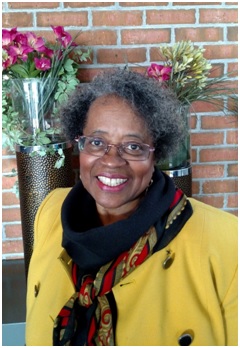- Home
- About AUCCCD
- Awards
- Board
- Bylaws
- Colleague Support Fund
- Elements of Enrichment
- Event Calendar
- Policies and Procedures Manual
- Complete History of AUCCCD
- Annual Conference
- Resources
- Membership
- My Account
- Contact
Copher Haynes AwardHarriett Copher Haynes Leadership Mentoring Award
Dr. Harriett Copher Haynes has spent her professional lifetime admiringly serving both the profession of psychology and the greater community. She received her B.S. in Nursing in 1963 from the University of Missouri, and from the University of Minnesota, an M.S. in Public Health in 1966 and a Ph.D. in Counseling Psychology in 1979. She was employed at the University of Minnesota Counseling & Consulting Services for 40 years (1971-2011) and served as Director for 15 of those years (1992-2007). In addition to providing strong center leadership, Dr. Haynes served as a leader, mentor role model and consultant for the university community, addressing issues of diversity, sexism, racism, responding to students in crisis, sexual violence/ending rape culture, mediation, crisis response, women's issues, multicultural curriculum development, and managing organizational change. In addition to her University responsibilities Dr. Haynes served as President of the Minnesota Psychological Association. She also held the positions of Treasurer, Ombudsperson, and Chair of the Women’s Division within the Association. She has also been active in advocacy efforts with state legislators, serving as the voice of psychology and diversity on the Governor’s Mental Health Council. Additional volunteer commitments included involvement with Save Our Hungry Children, The Board of Dakota Communities for the Developmentally Disabled, and a volunteer presenter for the Association for Citizens with Intellectual and Developmental Disabilities. In recognition of her outstanding professional and societal contributions, the Minnesota Psychological Association has awarded Dr. Haynes both the Diversity in Leadership Award and the Community Involvement Award. In presenting the latter award, Dr. Haynes was described as “the voice, sometimes quiet ,often with good humor, always with great command, of reason, fairness, conscience, compromise, and equality.” Call for Nominations for the 2025 AwardWe recognize that there are historical and current barriers that marginalized groups experience when trying to enter into counseling, and leadership in counseling centers. In an effort to address systemic barriers that under-represented and marginalized groups face, the Harriet Copher Haynes Scholarship is given to individuals from historically and currently marginalized groups. This program offers scholarships for attendance at our annual conference to talented mental health professionals who belong to an identity group that experiences systemic barriers. In 2014 this program was renamed after Harriett Copher Haynes to recognize and honor Harriett for her leadership in establishing this important initiative in 2003. AUCCCD recognizes that establishing a mentoring relationship with an experienced director and networking at the annual conference can provide a rich professional development experience for future directors. Qualifications:
Nature of the Scholarship:We look to award three scholarships of up to $2,500.00 each to cover the costs for the recipients to attend our 2025 Conference in Anaheim, CA. Scholarship recipients will co-present a program at the conference on a topic of their choice and expertise. Each recipient will also be matched with a current director who serves as a mentor. Nomination Process:Individuals can be nominated by submitting their vitae, two letters of support (one letter must be from the applicant's home institution director), and a statement of interest that includes:
Self nominations are accepted.We will open nominations for the 2025 Conference in early April. AUCCCD Past Recipients2024
2023
2022
2021
2019
2018
2017
2016
2015
2014
2013
2012
2011
2010
2009
2008
2007
2006
2005
2004
2003
|

